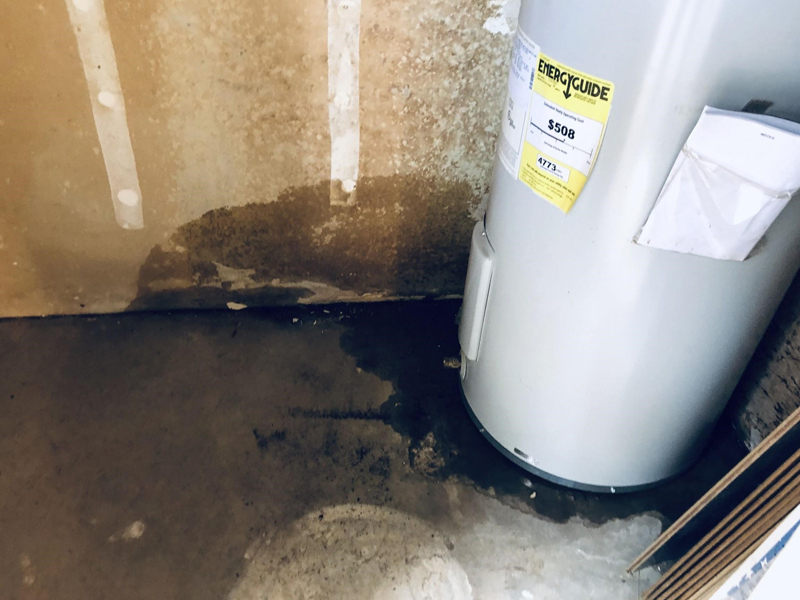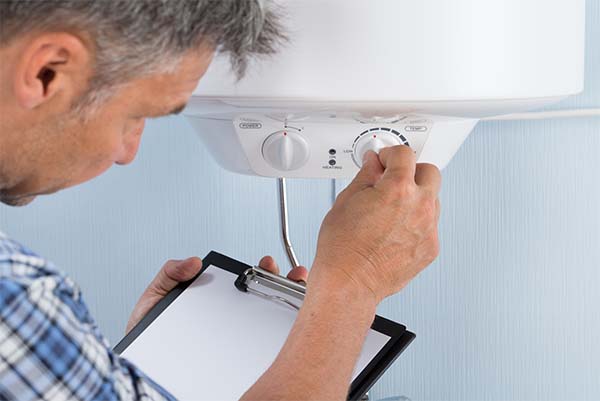Essential Actions for House Owners When Faulty Heating Units
Essential Actions for House Owners When Faulty Heating Units
Blog Article
This article below involving Maintaining & Draining a Water Heater is relatively intriguing. Check it out yourself and figure out what you think about it.

Whether it is located in the basement or a different space, damaged hot water heater can cause anxiety. A common device holds 80 gallons, so an overnight leakage will certainly cause a flooding. This results in significant property damages with soaked wall surfaces as well as floors. Besides, having no warm water supply is additionally bothersome. If you are dealing with these concerns, take note of the following:
Call the Plumber
After doing the first 2 security steps, you need to call your plumber to find right away to take care of a fractured water heater. Keep in mind that your unit will not simply conk out dramatically overnight. There are normally signs that your aging water heater has debris buildup in the interior. Take note of the following:
Do not wait on significant flooding to call the plumber. By then, you will have to spend even more to restore your property. Instead, as quickly as you find these signs, have an expert concerned examine your water heater container. Normally, hot water heater have a life expectancy of about 8 to 12 years. With routine inspection and also upkeep, you can lengthen its life.
Cut Off the Cold Water Supply
Cut off the storage tanks tap water supply from the resource. This goes from your main water line right into the storage tank. When your storage tank is in good condition, the cold water stops filling up when the tank is complete. Because it is leaking, the water will proceed to move. Close the shutoff found at the top of the heating system. Turn this clockwise to close it off. If you can not locate it or reach it, you have to switch off that main water supply line outside your building.
Shut Down Source Of Power
Before calling the plumber, closed off a gas water heating system by transforming the temperature dial. This will certainly stop electrocution, especially if there is a leakage as water is a conductor. Typically, the heating component closes off when the water strikes a specific temperature.
Clean Up Home
After calling the plumber, paper damage by bearing in mind and images so you can assert your property owner's insurance coverage. From there, start the prompt clean-up. Take out any essential personal belongings to stop further saturating. Eliminate any standing water to stop mold and mildew and mildew growth. Utilize that to drain pipes the water if you have a submersible water pump. Otherwise, the conventional container method will certainly likewise function. Attempt to wipe out whatever, consisting of walls and walls. Maintain them running to maintain air distributing if you have an electrical fan and dehumidifier. This will certainly assist discourage mold and mildew growth.
Remember, if you observe any kind of concerns with your water heater, call the pros right away. You can not take this issue gently due to the fact that a malfunctioning thermostat can elevate water temperature to an alarmingly high degree, leading to unexpected burns.
After doing the initial two safety steps, you have to call your plumber to come right away to deal with a fractured water heating system. Rather, as soon as you detect these indicators, have actually a professional come to examine your water heater tank. Prior to calling the plumber, shut off a gas water heating system by turning the temperature level dial. If you have a submersible water pump, use that to drain pipes the water. Remember, if you discover any type of problems with your water heating unit, call the pros right away.
Is My Water Heater Broken?
The Water Heater is Old
No appliance will last forever. This includes a home’s water heater. During its lifespan, residents are going to face a situation where a new water heater installation will be necessary. The biggest problem with this is that most people are not sure when their water heater expires. Not knowing this can lead to serious risks if the unit begins to act up due to old age.
Most makes and models of water heaters will last between eight and 10 years. While 10 years is the age when water heater replacement is highly recommended, the need to replace the unit may occur before this time or after. If the unit doesn’t show any symptoms of a problem, it is a good idea to replace it at the 10-year mark (from the manufacture date).
Some of the symptoms that indicate a new unit is needed include rusting, leaks, noises, and a failure to heat up the water. Also, note that not all units have a 10-year life expectancy. The main exception to this rule is that a gas unit will last for six to eight years.
Rusty Heater Inlet Valve or Water
While steel is the strongest material on earth, it does have a weakness – rust. If corrosion occurs on a steel surface, it will begin to spread and eat through the steel in certain areas. On water tanks and pipes that are made of steel, rust is a warning sign of an impending leak.
The issue for many is trying to figure out if the rust is coming from the water heater or the pipes that lead to the faucet. If rust is seen, it is a clear indication that water heater service from the professionals is needed.
If rusty water appears out of the faucets in the bathtub or sink, it likely means a rusty water heater. If there is rust near the water inlet or the pressure relief valve, rust has likely developed inside the tank. If tap water appears rusty, it may be an issue with the pipes.
Strange Sounds from the Water Heater
Are there strange sounds coming from the tank? As a water heater gets older, rumbling noises may develop and get louder and louder as the water in the tank heats up. In homes where large amounts of hot water are used, the issue is likely going to be even more obvious when more serious issues arise. If there is a strange or loud noise coming from the unit, it is probably because of sediment buildup. A good way to remedy this problem is by flushing the heater. If this does not work, then a new unit may need to be installed.
Leaks
As a water heater gets closer to the end of its useful life, there is a higher chance there will be water around the tank. If there is water, this usually means leaks are occurring. Based on where the unit is located in the home, a leak may result in serious property damage.
Leaks are usually caused by expansions in the metal tank. The expansions occur as time passes and as the inside body of the tank is exposed to multiple heating cycles per day. When a fracture forms, the gap will be slight enough to hold the water in; however, in more serious situations, this will not be the case. If the tank is idle, the water will not leak but when the metal expands during each heating system, small amounts of water will get through the gap.

As a fervent person who reads on Water Heater Burst, I was thinking sharing that piece of content was worth the trouble. Are you aware of somebody else who is truly interested in the topic? Why not promote it. Thanks for your time spent reading it.
Don't delay, ring today! Report this page